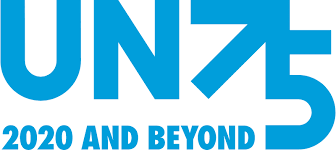A digital sprint to 2030
22 Sep 2020 18:30h - 19:00h
Event report
Digital solutions that have positive consequences for the Sustainable Development Goals (SDGs) have been proven critical during the COVID-19 pandemic and are estimated to contribute US$2.1 trillion to the technology sector in 2030. In this session, the panellists discussed the roles that technology giants and agile start-ups can play in navigating digital transformation.
The panellists emphasised the importance of a multistakeholder approach to unlock the opportunities of digital technology for SDGs. Mr Peter Lacy (Senior Managing Director, Accenture) pointed out that the private sector needs to take sustainability into account throughout its business operations. He outlined how Accenture is working with the UN through the SDG Ambition, an accelerator initiative that supports companies participating in the UN Global Compact, in setting corporate targets and accelerating integration of the 17 SDGs into core business management.
Digital inclusion is another aspect that was highlighted as important to the fulfillment of SDGs. Ms Rebecca Masisak (Chief Executive Officer, TechSoup Global) underlined that for digital technology to enhance the attainment of the SDGs, digital inclusion has to be the first principle in development and deployment of any technology. Masisak said that civil society can guide both the public and private sector’s digital inclusion due to its strong background in strengthening inclusivity. Mr Fabrizio Hochschild (United Nations Undersecretary-General; Special Adviser to the Secretary-General on the 75th Anniversary of the United Nations, United Nations) pointed out the lack of women’s presence in the executive roles of technological companies, calling on the industry to improve diversity and inclusion in management levels.
The UN Secretary General’s Roadmap for Digital Cooperation was recognised by the panellists as a guiding document in achieving the SDGs. Hochschild explained that the peril of digital technology (e.g. polarisation, utilisation of technology for destructive purposes) is the background of the SG’s roadmap. He underlined that all stakeholders need to realise that digital technology is no longer a luxury and that they need to focus more on affordable connectivity to ensure people’s rights to education and employment. Furthermore, making content available in local languages and boosting literacy rates will be an important step to reduce the gap between developed and developing countries.
Addressing the question of holding technology companies accountable, Lacy explained that a national regulatory framework is equally as important as global principles. He said that the industry is committed to open dialogue with policymakers and civil society to develop and implement appropriate regulatory measures. Additionally, he suggested that these companies can establish voluntary standards to uphold themselves to the highest standard in ethics and values.
Related topics
Related event

Digital Cooperation: Events during the High-Level Segment of the 75th United Nations General Assembly
15 Sep 2020 15:30h - 5 Oct 2020 17:00h
Online
